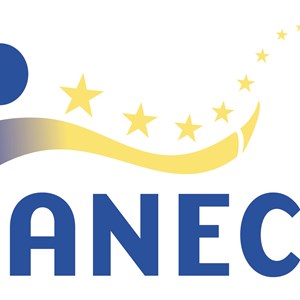NEWS

Europe faces growing geopolitical pressures and a rapidly evolving defence landscape. To build a resilient and competitive European defence sector, standardization must be integrated early and systematically into defence policy, planning, procurement, and capability development.
The war in Ukraine has made defence a top priority for Europe. Numerous policies focus on increasing European defence capabilities through greater cooperation and coordination of national defence forces, developing measures for interoperability, joint procurement, reducing industrial fragmentation, and strengthening supply chains.
The current lack of a dedicated, strategic framework for European defence standardization is an important opportunity to engage defence stakeholders and ensure standardization is focused on meeting their urgent and long-term needs.

The three European Standardization Organizations – CEN, CENELEC and ETSI – have created a consortium to respond to a call under the Single Market Programme Standardization aimed at Reinforcing the European Standardization System through Education and addressing the need for skilled experts in standardization.

Every four years, when the Winter Olympics comes around, people all over the world gather to marvel at the incredible skill, determination, and bravery the athletes showcase, set against a breathtaking backdrop of snow-covered peaks. This recurring rite has been in full force these weeks with the Milano-Cortina 2026 Winter Olympics. While it is undoubtedly the sportspeople in the spotlight, did you know that a myriad of standards are working in the background to ensure people are protected and the competitions run smoothly?

On Thursday, February 5, the Seconded European Standardization Expert for China (SESEC) organized the 2026 EU–China Standardization Roundtable and New Year Reception in Beijing. Benjamin de Ville, representing CEN and CENELEC and the Joint Technical Committee 24 ‘Digital Product Passport’, presented the EU Digital Product Passport Standardization Developments to the audience.

CEN and CENELEC are pleased to announce that the Work Programme 2026 has been published. The Work Programme is one of the flagship publications of CEN and CENELEC; it outlines the key priorities and actions that will shape European standardization in the year ahead.

The January issue of the CEN and CENELEC newsletter 'On the Spot' is out now!

SBS has launched a new and updated version of its SME Compatibility Test for Standards. The Compatibility Test, originally launched at the end of 2020, provides an overall appraisal of the SME compatibility of a given standard. The Compatibility Test is based on CEN and CENELEC and ISO Guide 17 “Guidance for writing standards taking into account micro, small and medium-sized enterprises (SMEs) needs”.

Last year, Standards Norway carried out a dedicated project to improve the information provided to prospective and newly appointed participants in standardization work. The objective was to streamline communication and ensure that committee members receive clear, accurate, and relevant information.

ANEC welcomes the revision of Regulation (EU) 1025/2012 and supports focused amendments that strengthen, rather than overhaul, the European Standardization System.

The European Commission is expected to publish its proposal to revise the EU regulatory framework on standardization in the second half of this year. In December, the ETUC contributed to this process by submitting its response to the Commission’s public consultation, which sought stakeholders’ views on the key priorities for updating the current regulation.